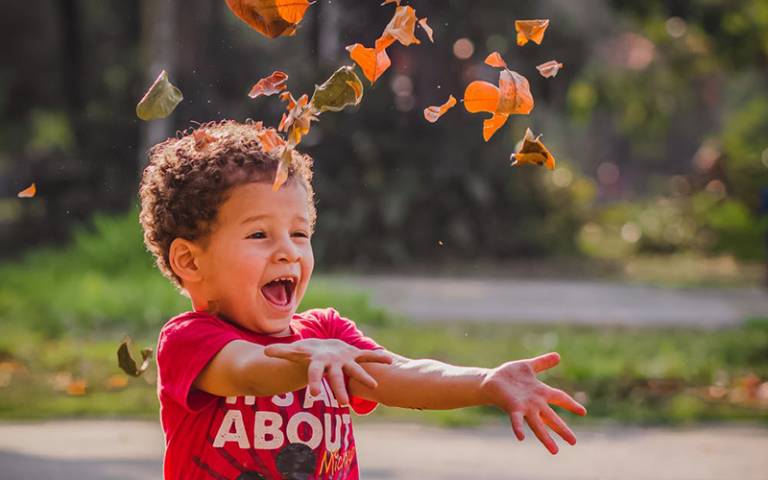Project launches examining how the COVID-19 pandemic impacts children’s play
16 October 2020
A new project exploring how children play during the COVID-19 pandemic has received funding from the Economic and Social Research Council (ESRC) as part of the UK Research and Innovation’s rapid response to COVID-19.

The project is led by UCL Institute of Education’s (IOE) Professor John Potter (UCL Knowledge Lab) and the team comprises Dr Kate Cowan and Dr Michelle Cannon (both IOE), Dr Valerio Signorelli (UCL Centre for Advanced Spatial Analysis), Dr Yinka Olusoga, Dr Julia Bishop and Dr Cath Bannister (all University of Sheffield).
The researchers will observe how children are currently playing in person and online and look at how games are emerging as a result of the pandemic. They will do this via a survey initially, with children telling their stories, alongside their parents. Some of the children will then make videos or audio reports about their experiences.
The 15-month project will also see an online exhibition curated with the V&A Museum of Childhood, a sound archive hosted by the British Library drawn from a subset of the data, a toolkit for talking with children about play in times of anxiety co-created by the Great Ormond Street Hospital play team, and a radio documentary about the research produced.
Professor Potter said: “There has been a lot of talk about how children are missing out academically because of the pandemic, however, they are missing out in other ways too. Play is strongly connected to children’s wellbeing and has undoubtedly been affected by issues such as lockdown, lack of space and loss of amenity.
“Anecdotal evidence is emerging of changes and adaptations to traditional games and the creative invention of new forms of play. With children as observers and reporters of their experiences, our data will form an observatory, documenting indoor, outdoor and imaginary play, including digital play, from onscreen games to social media.
“The project findings will illuminate the often-overlooked worlds of play and peer cultures, informing policy and practice during the pandemic and the ‘new normal’ beyond.”
 Close
Close

